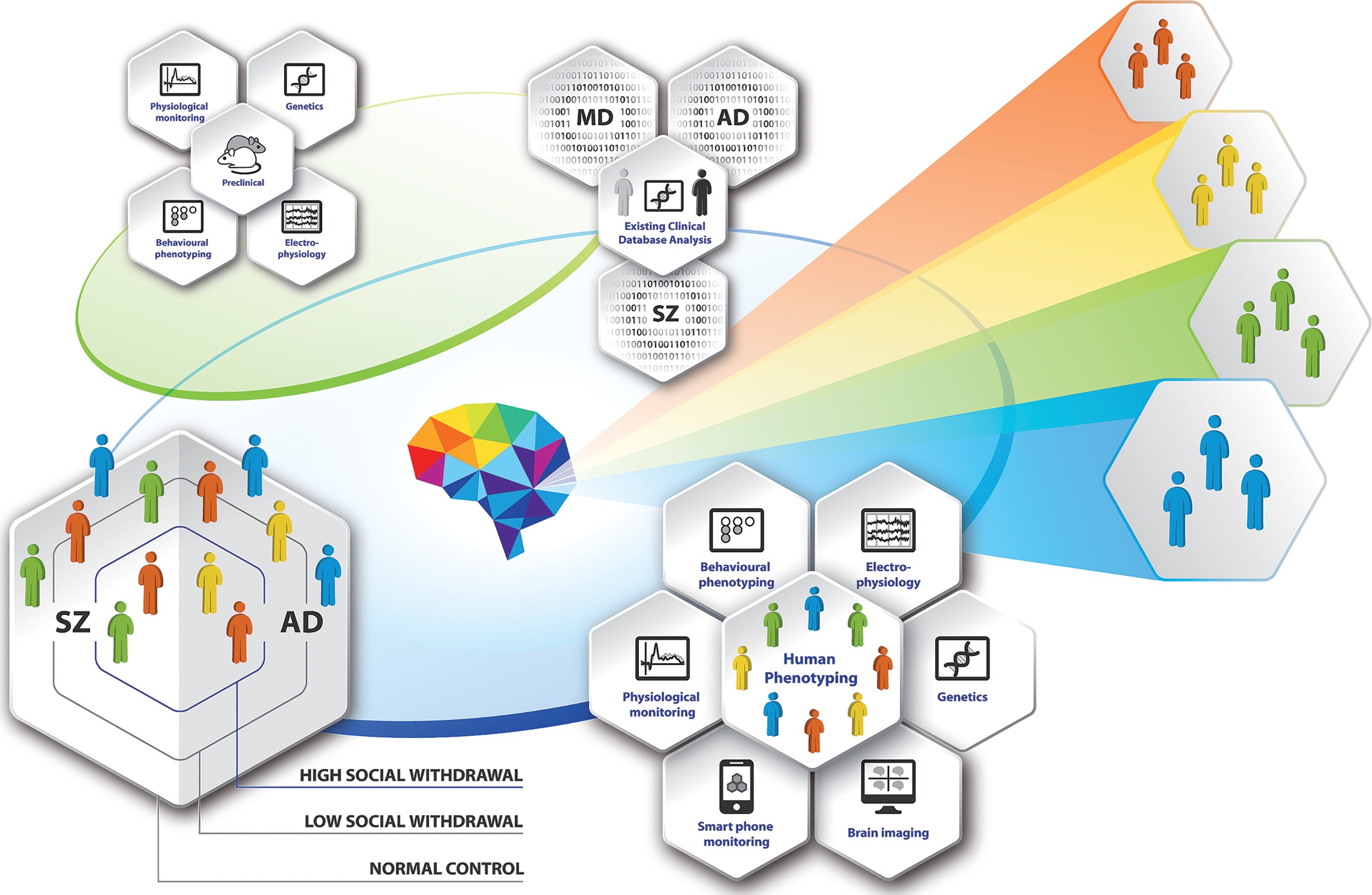Prof. dr. Kas coördinator van PRISM2 project met subsidie van 7,9 miljoen
Prof. dr. Martien Kas (GELIFES) is coördinator van een consortium dat een onderzoeksubsidie van maar liefst EUR 7,9 miljoen heeft ontvangen van het Innovative Medicines Initiative (IMI), 's werelds grootste partnerschap voor de ontwikkeling van geneesmiddelen in de publieke sector. De subsidie is voor het PRISM2 project, een nieuw project dat voortbouwt op het succes van het PRISM-project (Psychiatric Ratings using Intermediate Stratified Markers) naar geestelijke gezondheid. PRISM focust zich op de ziekte van Alzheimer, schizofrenie en depressieve stoornis. In totaal werken veertien onderzoeksinstituten en bedrijven samen in dit project. Kas ontvangt als coördinator EUR 1,6 miljoen voor zijn aandeel in het project (en was ook al coördinator van het succesvolle PRISM-project).

Het PRISM-project heeft als doel kwantitatieve biologische kenmerken te identificeren die bij alle drie genoemde ziekten voor komen, waardoor de mogelijkheid wordt geopend om gerichte behandelingen te ontwikkelen, ongeacht de traditionele diagnose. De meeste psychische of neurologische problemen worden pas gediagnosticeerd als ze effect beginnen te krijgen, bijvoorbeeld wanneer mensen in een depressie beginnen te verzinken of wanneer de ziekte van Alzheimer het geheugen begint aan te tasten. Het vermogen om de biologische oorzaken van psychische aandoeningen te begrijpen vóór klinische aanvang - wat kan leiden tot zowel vroege diagnose als gerichte behandeling - is lange tijd een ‘heilige graal’ van de neurowetenschap geweest.
Het oorspronkelijke PRISM-project, gelanceerd in 2016, werkte met patiënten om hersen- en gedragsactiviteiten te meten met behulp van een verscheidenheid aan nieuwe en bestaande technieken. Coördinator prof. dr. Martien Kas: “PRISM heeft nieuwe statistische en monitoringtools kunnen toepassen om biologische associaties met mentale gezondheid en neurologische aandoeningen te ontrafelen. Het gebruik van GPS en data van smartphones laten bijvoorbeeld zien hoeveel mensen bewegen en communiceren, wat de status van sociaal functioneren aangeeft. We kunnen gedragskenmerken relateren aan bevindingen van MRI en EEG: in feite hebben we meer dan 4000 relevante biologische markers geïdentificeerd. We beginnen nu patronen te identificeren die deze markers en gedragskenmerken associëren met aandoeningen zoals de ziekte van Alzheimer en schizofrenie, en dit heeft ertoe geleid dat het IMI fase 2 van het project heeft ondersteund. Het nieuwe PRISM2 project beoogt te bepalen hoe reproduceerbaar en nauwkeurig onze eerste bevindingen zijn, vooral bij schizofrenie en de ziekte van Alzheimer, en we zullen de generaliseerbaarheid van de bevindingen onderzoeken naar een derde indicatie, namelijk depressieve stoornis. Het uiteindelijke doel is om onze bevindingen te vertalen naar praktische diagnose en behandeling”.
Innovative Medicines Initiative (IMI)
Het Innovative Medicines Initiative is een partnerschap (‘joint undertaking’) tussen de EU en de European Federation of Pharmaceutical Industries and Associations (EFPIA) die wetenschappers uit de academische wereld en de industrie samenbrengt om de ontwikkeling van behandelingen te versnellen, vooral wanneer er een onvervulde behoefte is. Veertien instituten en bedrijven in Europa, het Verenigd Koninkrijk en de Verenigde Staten gaan samenwerken aan PRISM2.

Meer nieuws
-
17 februari 2026
De lange zoektocht naar nieuwe fysica
-
10 februari 2026
Waarom slechts een klein aantal planeten geschikt is voor leven
